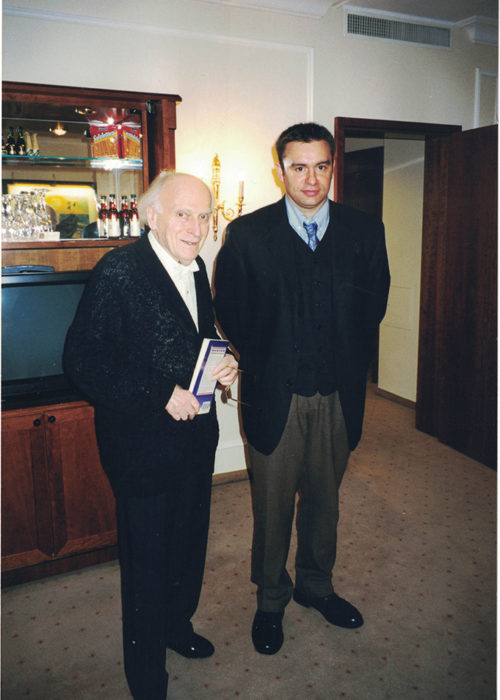“Now I know there is a God in Heaven!” Albert Einstein is said to have exclaimed as he embraced Yehudi Menuhin, who was just 13 years old, in the Berlin Philharmonic. Lord Yehudi Menuhin, who was born exactly one hundred years ago, was the most famous violin virtuoso of the 20th century. He was already considered a child prodigy at the age of seven after dazzling 9,000 visitors in San Francisco with a sensitive interpretation of Mendelssohn Bartholdy’s Violin Concerto.
At the age of ten he played in Paris, at eleven in New York’s Carnegie Hall. But Menuhin, who also had a world career as a conductor, was more than a musical genius. He was a humanist authority, a teacher of humanity, as Einstein once called him. He stood up for human rights in the USSR and in China when that was unpopular. With his more than 500 concerts during the Second World War, he helped war victims and refugee children, performed in front of the liberated prisoners of the Bergen-Belsen concentration camp in 1945, and in war-torn Berlin he demonstratively played under the ostracised Wilhelm Furtwängler, Hitler’s favourite conductor. As a co-founder of the Global Citizens Movement (Weltbürgerbewegung), he warned against the neoliberal global economic wars we are experiencing today. Rita Süssmuth, then President of the German Bundestag, noted in a newspaper article on the occasion of the 50th anniversary of the World Citizens Movement, which was born in Paris in 1948, that human rights would probably never have been proclaimed “had it not been for a few courageous people in Paris in 1948, such as the philosopher Albert Camus, the former US bomber pilot Garry Davis and Yehudi Menuhin, who publicly exerted pressure on the UN members”.
Why are we telling you all this? Because Eric Bihl, the chairman of Equilibrismus e.V., was allowed to meet Yehudi Menuhin, who was knighted by the Queen Elizabeth II in 1985, in person shortly before his death. After all, Lord Yehudi Menuhin always loudly reminded us of the fragile unity of planet Earth. And it was precisely this commitment that led us to make contact with this extraordinary person. We communicated back and forth for 6 months until, in December 1998, Menuhin asked us to send him our press kit, which explained the philosophy and purpose of Equilibrism in detail.










